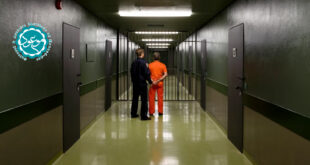The part played by alcohol in ruining lives juvenile as well as adult-has been the subject of the day-to-day working of the land courts. Here are reproduced some of the judgements of the United States Supreme Court, which should serve as eye-openers for all those who view crime, especially juvenile crime, with the horror it deserve as the chief cause of the destruction of social harmony and happiness.
1. If a loss of revenue should accrue to the United States from a diminished consumption of ardent spirit, she will be a gainer a thousand fold in the health, wealth and happiness of the people.
2. We cannot shut out of view the fact, within the knowledge, of all, that the public health, the public morals and the public safety may be endangered by the several uses of intoxicating drinks, nor the fact established by statistics accessible to everyone that the idleness, disorder, pauperism and crime existing in the country are in some degree at least, traceable to this evil.
3. That drunkenness is an evil both to the individual and to the State, will probably be admitted. That its legitimate consequences are disease and destruction of mind and body will also be granted. That it. produces from four fifth to nine-tenth of all the crimes committed is the united testimony of those judges, prison keepers, Sheriffs and others engaged in the administration of the criminal law, who have investigated the subject, that taxation to meet the expenses of pauperism and crime falls upon and is borne by the people, follows as a matter of course. That its tendency is to destroy the peace, safety and well-being of the people, to secure which the first article in the Bill of Rights, declares all free governments are instituted, is too obvious to be denied.
4. Probably no greater source of crime and sorrow has ever existed than the Social drinking saloons. Social drinking is the evil of evils. It has probably caused more drunkenness and has made more drunkards than all other causes combined; and drunkenness is a pernicious source of all kinds of crime and sorrow. It is a Pandora’s box, sending forth innumerable ills and woes, shame and disgrace, indigence, poverty and wants. Social happiness destroyed, domestic broils and bickering engendered, social ties severed, homes made desolate, families scattered, heart-rending partings, sin, crime and untold sorrow, not even hope left, but every-thing lost, an everlasting farewell to all true happiness, and to all the nobler aspirations, rightfully belonging to every true and virtuous human being.
5. The train of evils which marks the progress of intemperance is too obvious to require comment. It brings with it degradation of character, impairs the moral and physical energies, wastes the health, increases the number of paupers and criminals, undermines the morals and sinks its victims to the lowest depths of vice and profligacy.
6. It is still the prolific source of diseases, misery, pauperism, vice and crime. Its power to weaken, corrupt, debauch and slay human character and human life is not destroyed or impaired because it may be susceptible of some innocent uses,
7. There is no statistically or economically better established proposition, nor one to which a more general assent is given by reading and intelligent minds, than this : That the use of intoxicating liquors as drink is the cause of more want, pauperism, suffering, crimes and public expense than any other cause-and perhaps it should be said-than all other causes combined.
Every state applies the most stringent legal power to lotteries, gambling, keeping gambling houses, and implements, and to debauchery and obscenity, and no one questions the right and justice of it, and yet how small is the weight of woe produced by all these united, when compared with that which is created by the use of intoxicating drink alone.
8. The evils that result from the use of intoxicating liquors, generally occur at the place where they are consumed, and tendency to crime and pauperism follow in that place. By the general concurrence of opinion of every civilized community, there are few sources of crime and misery to Society equal to the dram shop, where intoxicating liquors in small quantities to be drunk at the time, are sold indiscriminately to all parties applying. The statistics of every state show a greater amount of crime and misery attributable to the use of ardent spirits obtained at these retail liquor saloons, than to any other source.
These are only a fee of the pronouncements of judgements of the highest courts of the United states of America. They bring out clearly the intimate connection that , subsists between the waves of crime, sweeping that “civilized” community and the powerful potentials that alcohol possesses as producers of the conditions that favour disorderly conduct. These findings of the most eminent intellects are based on direct experience of the day-to-day working of the legal system.
They unanimously condemn the role of alcohol as enemy No. 1, of peace and order in a community, before which the judges, the legislators, and the public leaders sit helpless. As far back as 1907, Judge Ira W. Christian of the circuit court of Hamilton County (Indiana), pronounced a judgment to the effect that a retail liquor shop is within itself a public nuisance and that the statute authorising the licensing of such a shop is unconstitutional.
Judge R. Samuel Artiman in his profoundly well-planned book, “The Legalized Outlaw” has reproduced such cases very, adequately in their bearing on crime and other evils in Society. His own judgment delivered in the same year 1907, is among the most notable pronouncement in the annals of American law-courts. This decision was to the effect that 11 the State of Indiana had no right to authorise the licensing of a saloon and that the statute providing for so doing was unconstitutional.
The case was never taken in appeal to a higher court of law and the decision stands unrevoked un-impeached to this day. It awakened universal interest and wide discussion. Millions of copies of this decision were distributed by public demand and it was printed as a public document by the United States Senate as a “State Document, No, 384”. The book referred to above, “The Legalized Outlaw ” elaborates the principles involved in this decision, giving the full text and complete details of the case under review.
No one can view with equanimity the havoc played by liquor traffic in the orderly management of the affairs of a community, far less the judges whose chief responsibility is the maintenance of peace and order in the Society. The really well. intentioned among them have tried to bring to light the effect which alcohol has on ruining the lives of the people and their domestic happiness through the criminal attitudes, which it engenders in the minds of its victims.
 Mouood Mouood English Edition
Mouood Mouood English Edition




